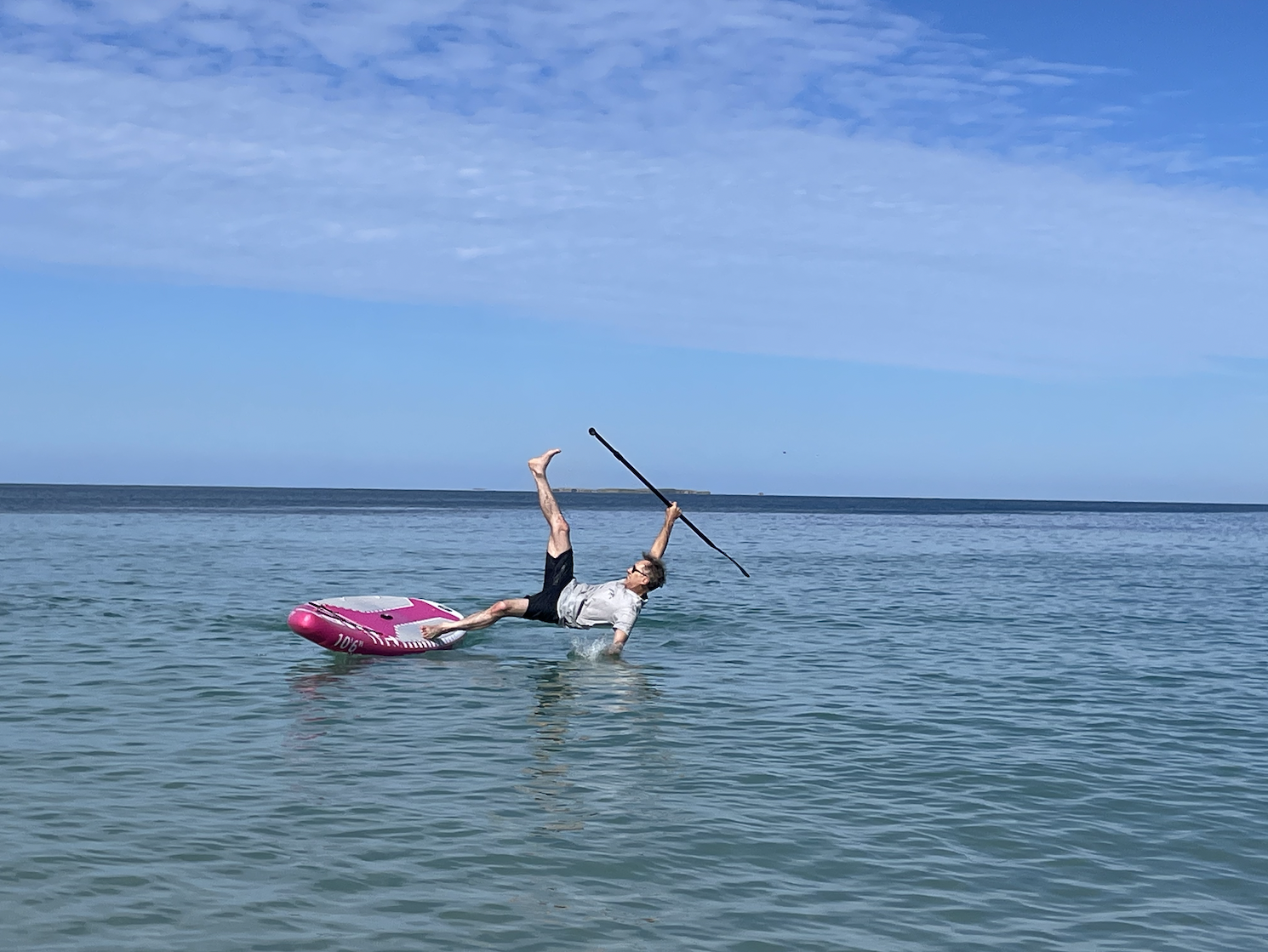Embracing the Beautiful and the Messy - Falling past centre to find it
In a few days time our first child turns 18. And we're heading south to celebrate this transition by the salty river, under the peppermint trees, where he’s spent his childhood summers.
His entire life I’ve been learning how to be his mother, flailing and maturing through each stage of his growing. I've not been a perfect parent, nor have I tried. I've been a good-enough parent - a philosophy made famous by Donald Winnicott.
For the last 2 years I’ve entered a stage I call de-mothering
When our son turned 16 my partner and I spontaneously burst into tears. It was the first definitive moment we looked at him and realised his childhood, our childhooding, was over. His large, angular frame towered over his breakfast bowl and his 16-year-old attitude and voice boomed across the table. It was a shocking realisation that we’d done all he would allow us to do.
This stage is heartbreaking, hilarious, tender, and anxiety inducing, but I'm fully engaging in this deliberate and active untethering. I’m stepping back, loosening and detangling the ties, and unstaking this beautiful growing being. He is strong enough to withstand the winds of life without my careful support. He's also green enough to flail with dampened consequences.
Feldenkrais is my profession but it is foremost my resource-rich ocean. It nourishes, buoys and guides me through my life and it's been most impactful in helping me embrace the challenges and anxieties of motherhood.
Feldenkrais is a method for adulting, for learning to live consciously, and untethered, for embracing the challenges, joys and anxieties life offers us and for discovering how we want to do this thing called life.
For many, however, learning to ‘adult’ is scary. If we have been tendered to by well-meaning parents, or held firm by a perfection-fuelled society deciding to live life our way, with personal authority, may be unfamiliar or even risky.
Many years ago a client asked if I could help them with their handstands. They could do one against a wall but they wanted to do one freely.
It’s a simple youthful desire. And a great metaphor for our adulting struggles.
Photo by Adam Thomas on Unsplash
“Show me your handstands” I said
After watching I asked... “Have you ever gone over?” “Have you ever fallen?”
“No! I’m trying not to” they replied
“Hmmm, Yes I can see that…”
“Sadly, this is the problem."
"You’ll never learn to do a handstand unless you allow yourself to go past the mid line - to fall” “You see the only way you will learn, kinaesthetically - in your flesh - where the balance point is, is by passing through it." "If you hold yourself back you will never get to that point."
"You need to go past it, to find it!”
“But I’m scared of falling”
“Yes, of course!” “So, let’s help you feel safe to go over/to fall so you can really learn.”
Feeling safe to fall, safe to fail, safe to learn is essential.
And whether we like it or not overshooting is essential for learning - although it is good to make it a soft landing - as my partner demonstrated beautifully on Christmas Day :)
In this de-mothering phase I’m undershooting and overshooting constantly… my son is falling with abandon, crashing with a giggle and a thud, rolling, flipping and hooting his way to finding his balance point (Although he seems the least bit interested in balance). Teenagers seem to relish the chaos of overshooting, and protect fiercely their undershooting.
In 2022 the Oxford Dictionary's word of the year was 'Goblin mode'characterised as 'a type of behaviour which is unapologetically self-indulgent, lazy, slovenly or greedy, typically in a way that rejects social norms and expectations.'
The thesaurus just says - Teenagers
I can be amused or aghast as I observe, but I'm aware it is wholeheartedly his learning.
My job as his mother now, is to stop mothering
2022 also gave rise, for me, to another word that fits this musing. Made popular by John Rawls. It’s called anti-perfectionism. It is not a term I'd heard before but it’s a concept we welcome in Feldenkrais and one that over the decades I’ve come to cherish and master.
Anti-perfectionism is much like anti-racism in that it demands we actively engage in a reckoning. Because, like racism, perfectionism can be an invisible, insidious norm of our society. It's encultured into us as the ‘proper', the 'right’, the 'desirable' way to behave. Even the health industry gets trapped into ideas of the 8 hour sleep cycle, 2L of H20, the 'perfect' diet, a balanced nervous system etc.
In reality perfectionism is best left for making screws
As a practitioner I support people welcome, and eventually love, the messiness of learning. Embracing anti-perfectionism feels like calling out a damaging ideology. It asks us to renounce flawlessness, to speak honestly of our life's experiences, and to create conditions that give us, and those around us, full permission to learn… slowly, messily, and in our own way.
This hilarious Christmas story exemplifies the joy of embracing anti-perfectionism.
Read and bathe in the town mayors Aussie optimism...
https://www.abc.net.au/news/2022-12-07/nsw-council-moves-to-fix-local-christmas-tree/101738236
As I reflect on 2022 I won't be critiquing my ‘bad habits’ or ‘failures’ nor will I be signing allegiance to a raft of New Year's habits, instead I'll be lying under a peppermint tree, pondering my learning continuum - where did I stand back and watch, where did I experiment in small increments, where did I experience a fleeting moment of balance, where did I overshoot, where did I fall with a soft landing, where did I crash, where was I being supported, where did I turn falling into form, where did I master some new moves…
I hope these holidays you've had time to reflect on your 2022
And as you step gayly, gingerly or begrudgingly into 2023 maybe you're also curious how you can embrace more anti-perfectionism.
Life's not meant to be perfect
Neither are people
We're simply on a beautiful, messy, fleeting adventure
HAPPY 2023
and
Happy in the present moment of wherever you are


